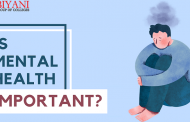DEFINITION
Chronic Obstructive Pulmonary Disease (COPD) is an umbrella term used to describe progressive lung diseases including emphysema, chronic bronchitis, refractory (non-reversible) asthma, and some forms of bronchiectasis. This disease is characterized by increasing breathlessness.
CAUSES
SMOKING
ENVIOURMENTAL FACTORS
GENETIC FACTORS
Most cases of COPD are caused by inhaling pollutants; that includes smoking (cigarettes, pipes, cigars, etc.), Smoking and second-hand smoke.
Fumes, chemicals and dust found in many work environments are contributing factors for many individuals who develop COPD.
The main symptoms are:
• A long-lasting (chronic) cough.
• Mucus that comes up when you cough.
• Shortness of breath that gets worse when you exercise.
As COPD gets worse, you may be short of breath even when you do simple things like get dressed or fix a meal. It gets harder to eat or exercise, and breathing takes much more energy. People often lose weight and get weaker.
At times, your symptoms may suddenly flare up and get much worse. This is called a COPD exacerbation (say “egg-ZASS-er-BAY-shun”). An exacerbation can range from mild to life-threatening. The longer you have COPD, the more severe these flare-ups will be.
Genetics can also play a role in an individual’s development of COPD—even if the person has never smoked or has ever been exposed to strong lung irritants in the workplace.
SIGN AND SYMPTOMS
• Increased breathlessness
• Frequent coughing (with and without sputum)
• Wheezing
• Tightness in the chest





